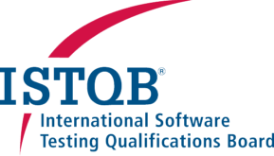Certified Tester Advanced Level Test Management (CTAL-TM) v3.0 [NEW!]
The ISTQB® Advanced Level Test Management (CTAL-TM) certification provides the knowledge and competencies to take responsibility for managing all the testing activities across the software development lifecycle. It covers everything from how to design a suitable test approach for the project based on the organizational test strategy to building a test team or testing competencies to complete the necessary testing.
This Advanced Level qualification is aimed at anyone involved in the management of software testing. This includes people in roles such as testers, test consultants, test managers, user acceptance testers, scrum masters, project managers or product owners. This Advanced Level Test Management qualification is also appropriate for anyone who wants an advanced understanding of software testing such as project managers, quality managers, software development managers, business analysts, IT directors and management consultants. Holders of the Advanced Level Test Management Certificate will be able to go on to the ISTQB® Expert Level software testing qualifications. The ISTQB® Certified Tester Advanced Level – Test Manager or Test Management certificate is valid for life and does not require renewal. The certificate is recognized internationally and demonstrates the candidates’ professional competence and credibility in test management.
To gain this certification, candidates must hold the Certified Tester Foundation Level v4.0 or previous versions of the Foundation Level certificate and have sufficient practical experience. Please contact an ISTQB® Member Board or Exam Provider to determine the specific practical experience criteria.

A candidate who has achieved the Certified Tester Advanced Level Test Management certification should be able to:
- Manage testing in various software development projects by applying test management processes established for the project team or test organization
- Identify test stakeholders and software development lifecycle models that are relevant in a given context
- Organize risk identification and risk assessment sessions within any software development lifecycle and use the results to guide testing to meet the test objectives
- Define a project test strategy consistent with the organizational test strategy and project context
- Continuously monitor and control testing to achieve project goals
- Assess and report test progress to project stakeholders
- Identify necessary skills and develop those skills within your team
- Prepare and present a business case for testing in different contexts that outlines the costs and expected benefits
- Lead test process improvement activities in projects or software development product streams and contribute to organizational test process improvement initiatives
- Plan the test activities including the required test infrastructure and estimate the effort required to test
- Create defect reports and a defect workflow suitable for a software development lifecycle
Training is available from Accredited Training Providers (classroom, virtual, and e-learning). We highly recommend attending accredited training as it ensures that an ISTQB® Member Board has assessed the materials for relevance and consistency against the syllabus.
Self-study, using the syllabus and recommended reading material, is also an option when preparing for the exam.
Holders of this certification may choose to proceed to other Core, Agile, or Specialist stream certifications.
